introduction of fish food processing plant machinery in Congo
For fish farmers along the Congo River and across the country, the high cost of quality fish feed is a major challenge. Relying on imported feed is expensive and the supply can be unpredictable. This makes it difficult to run a profitable aquaculture business. Setting up your own fish food processing plant using the right machinery is a powerful solution. It allows you to take control of your costs, use local Congolese ingredients, and produce fresh, high-quality feed for your fish.
This guide is written for you, the Congolese fish farmer. We’ll explain the key floating feed making machines you need, the benefits of local production, where to find suppliers, and the important questions to ask before you invest.
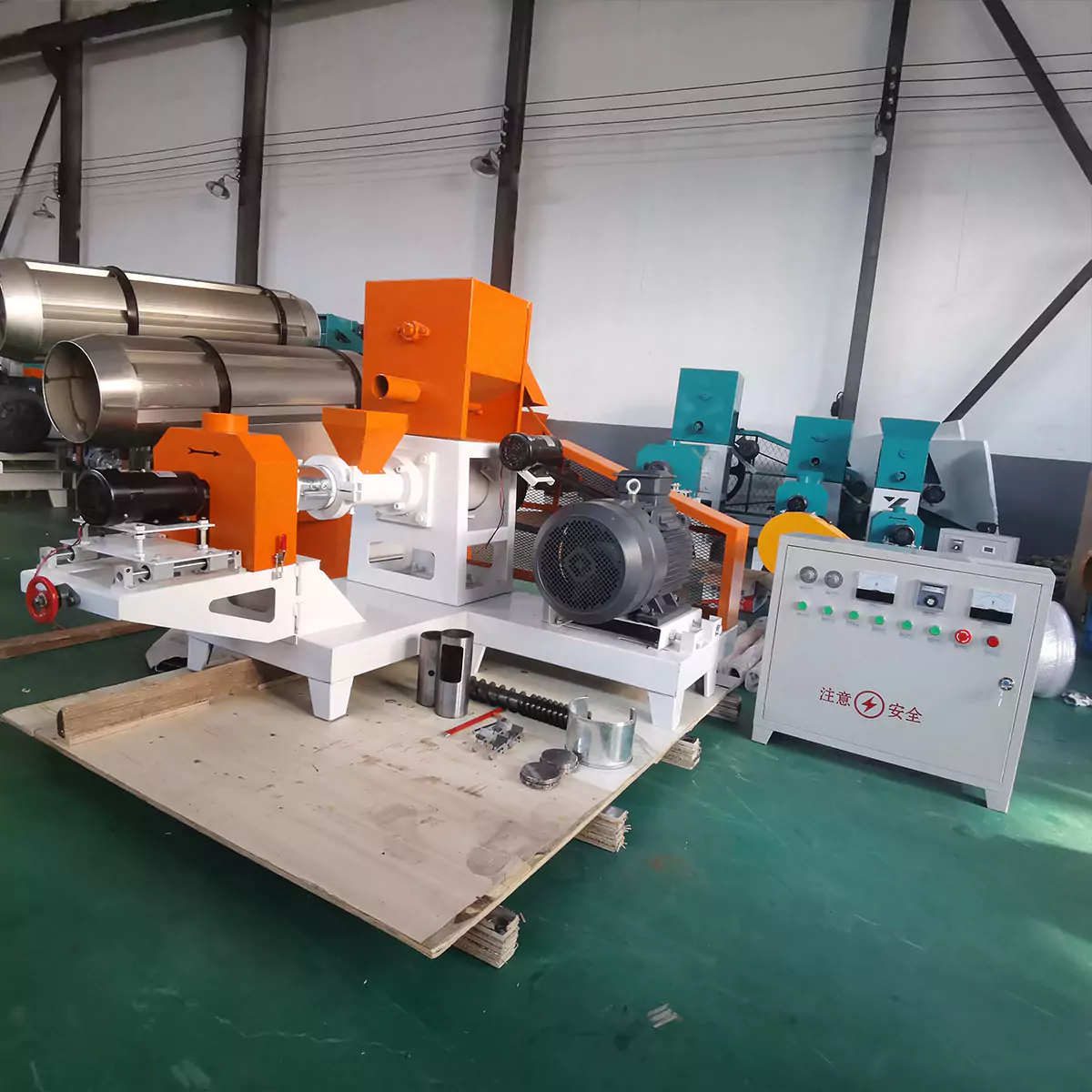
Why a Local Fish Food Plant is a Game-Changer in Congo
Having your own floating fish feed plant offers clear advantages for your farm in Congo.
Drastically Reduce Your Feed Costs.
This is the biggest benefit. You can make your own feed using local ingredients like cassava (manioc), maize (maïs), and soybean meal. These are often much cheaper than paying high prices for imported commercial feeds.
Create the Perfect Feed for Your Fish (Tilapia & Catfish).
You can create floating feed, which is ideal for the most popular farmed fish in Congo, tilapia and catfish (poisson-chat). Floating feed reduces waste because you can see the fish eat. It also helps keep your pond water cleaner and healthier for the fish.
Ensure a Reliable and Fresh Feed Supply.
“You are no longer dependent on uncertain import schedules or market availability. You can produce fresh, nutritious feed whenever your fish need it. This gives you stability and peace of mind.”
Build a New Business Supplying Other Farmers.
Once you are making enough feed for your own farm, you have an opportunity. You can sell your high-quality feed to the growing number of other fish farmers in your region. This can create a new and valuable source of income.
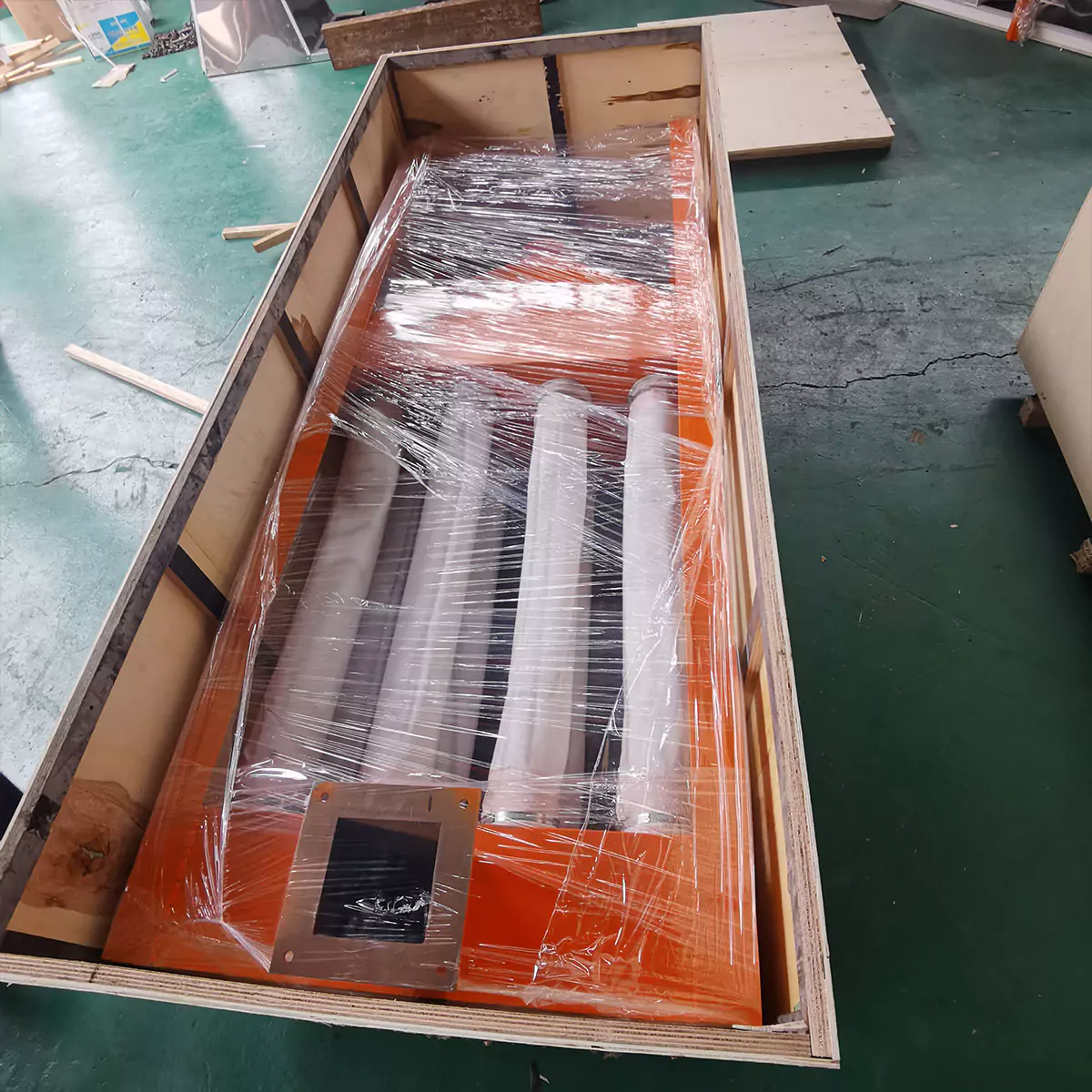
The Key Machinery in a Fish Food Processing Plant
A fish food plant is a system of several machines working together.
The Grinder (Hammer Mill): The First Step to Good Feed.
Its purpose is to grind your dry raw ingredients into a fine, consistent powder. This is essential for good mixing. It is also critical for your fish to be able to digest the feed easily.
The Mixer: For a Balanced Meal in Every Pellet.
Its purpose is to thoroughly blend the ground powders with vital micro-ingredients like vitamins and minerals. A good mix ensures every single pellet is nutritionally complete.
The Extruder: The Machine That Makes Feed Float.
“This is the most important machine for a modern Congolese fish farm. The feed extruder cooks the feed under high pressure. This process causes the pellet to expand and float on the water. A standard feed pellet mill can not do this.”
The Dryer: Essential for Preventing Spoilage.
Its purpose is to remove the excess moisture from the hot, fresh pellets. This is a critical step. It prevents mold from growing and allows for the safe storage of your feed.
The Cooler and Packer:
Their purpose is to cool the pellets to harden them. The packer then puts the finished pellets into bags for easy handling and storage.
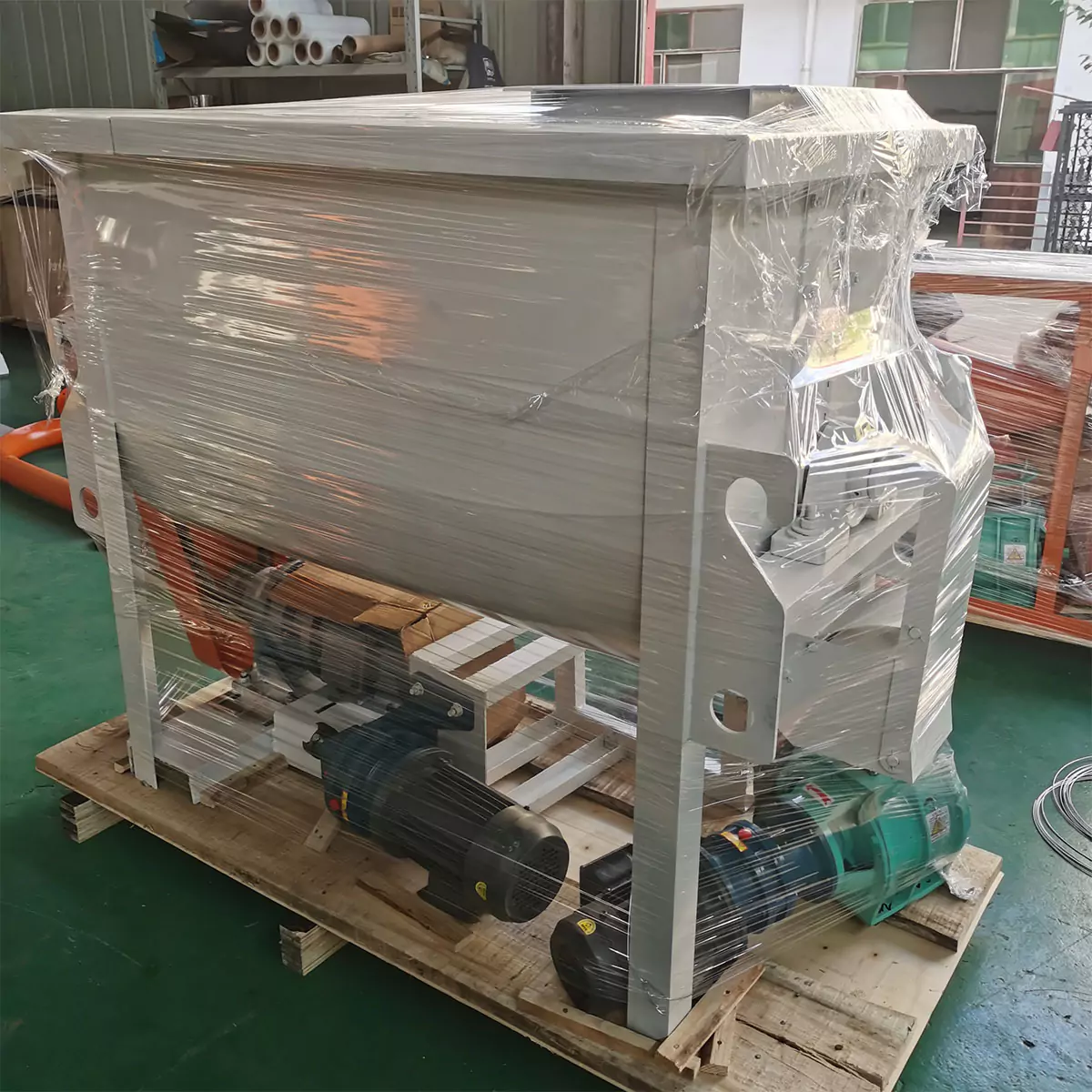
The Production Process: From Cassava to Fish Pellet
Making floating fish feed follows a clear, step-by-step production process.
- Grinding the raw ingredients into a fine powder.
- Mixing the ingredients thoroughly according to your specific formula.
- Extruding the mix to cook and shape the floating pellets.
- Drying the pellets to reduce their moisture to a safe level.
- Cooling the pellets to harden them for storage.
- Bagging the finished product.
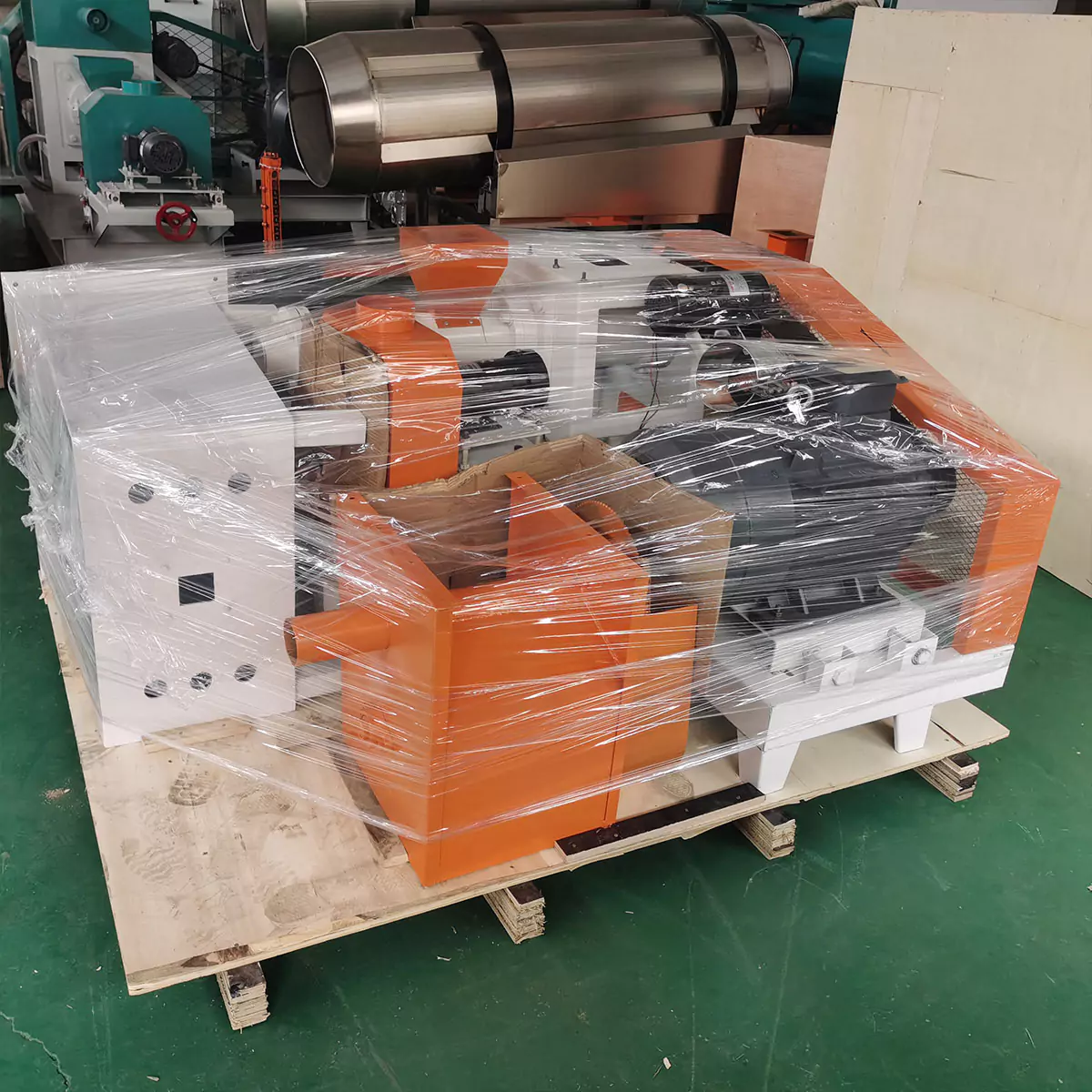
Finding Machinery Suppliers in Congo: Where to Look
Finding a reliable supplier can be a challenge, but here is where to start.
- Major Commercial Hubs: Kinshasa and Lubumbashi. These cities are the primary centers for importing and distributing industrial and agricultural machinery in Congo.
- Look for Agricultural or Industrial Equipment Dealers. It is best to seek out established dealers who can provide some level of support or advice for their machines.
- Consider Cross-Border Sourcing. Some farmers and businesses look to suppliers in neighboring countries or major international hubs for more options.
- The Importance of a Reliable Local Contact. “Whether you buy locally or import, having a reliable contact on the ground to help with logistics, customs, and potential repairs is extremely valuable. This can save you a lot of time and money.”
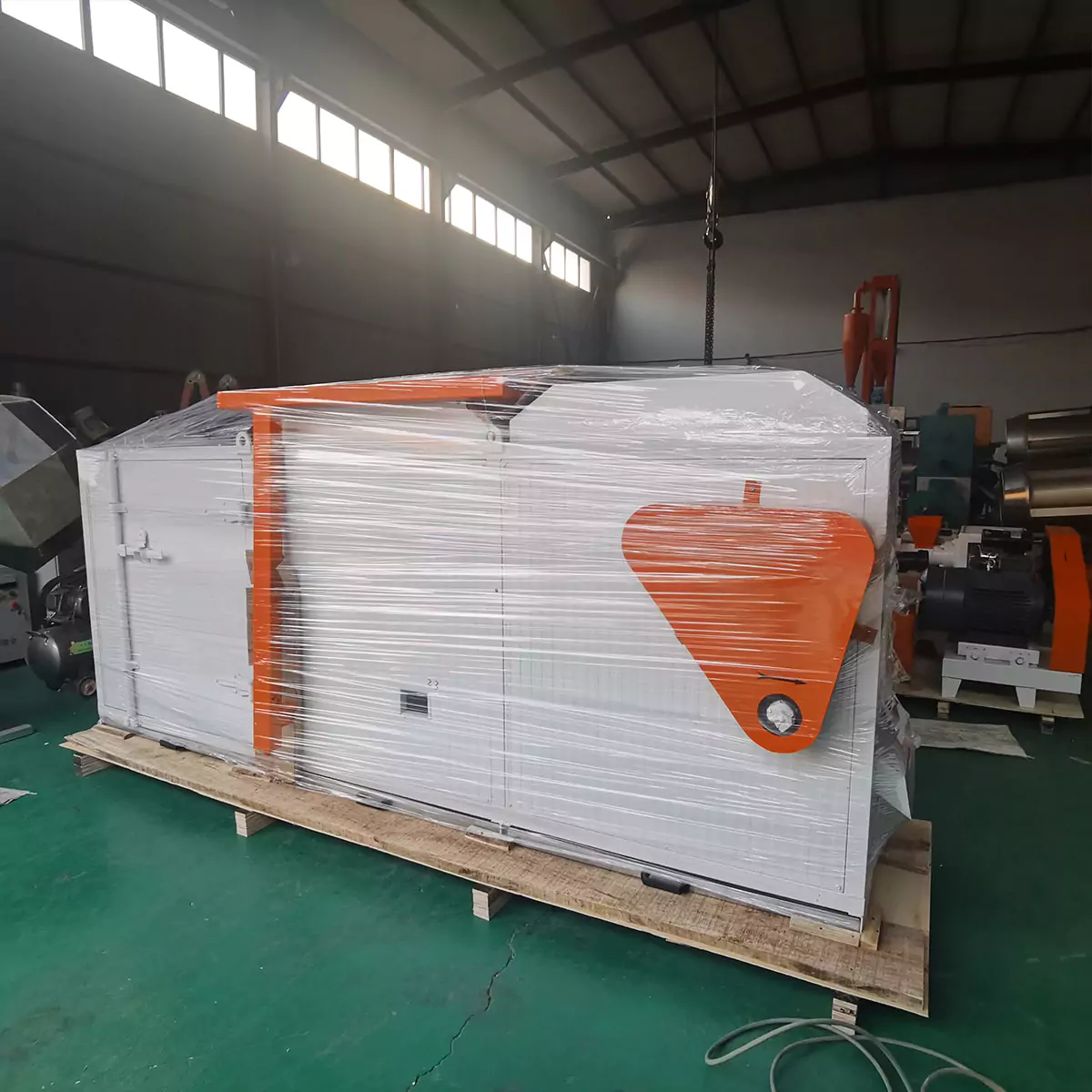
A Buyer’s Checklist: What to Ask Before You Invest in Congo
Think carefully before you buy. Ask these important questions:
What is your real power situation?
“This is the most critical question in Congo. Is your grid power supply reliable enough for a large electric motor? Or is a diesel generator or a diesel-powered machine an absolute necessity for your business to operate without constant interruptions?”
What is your required capacity (in kg per hour)?
Match the machine’s output to the size of your fish farm and your production goals.
Look for a Strong, Simple, and Mechanically-Driven Machine.
“Complex electronics can be very difficult to repair in many areas. A robust machine with a simple, strong mechanical design is often a much safer and more reliable long-term investment.”
Ask About the Screw and Barrel Quality.
“These are the heart of the extruder. They do all the hard work. They must be made from high-quality, wear-resistant alloy steel to last a long time.”
Ask a Direct Question About Spare Parts.
“Before you pay, ask the supplier: ‘If I need a new screw or die, how do I get it here in Kinshasa? Do you have them, or do I have to import it myself?’ The answer will tell you a lot about future challenges.”
Conclusion
For Congolese fish farmers, investing in the right machinery for a fish food processing plant, especially a feed extruder, is a key step towards self-sufficiency and profitability. By taking control of your feed production with robust and reliable machinery, you can build a stronger and more successful aquaculture business in Congo.
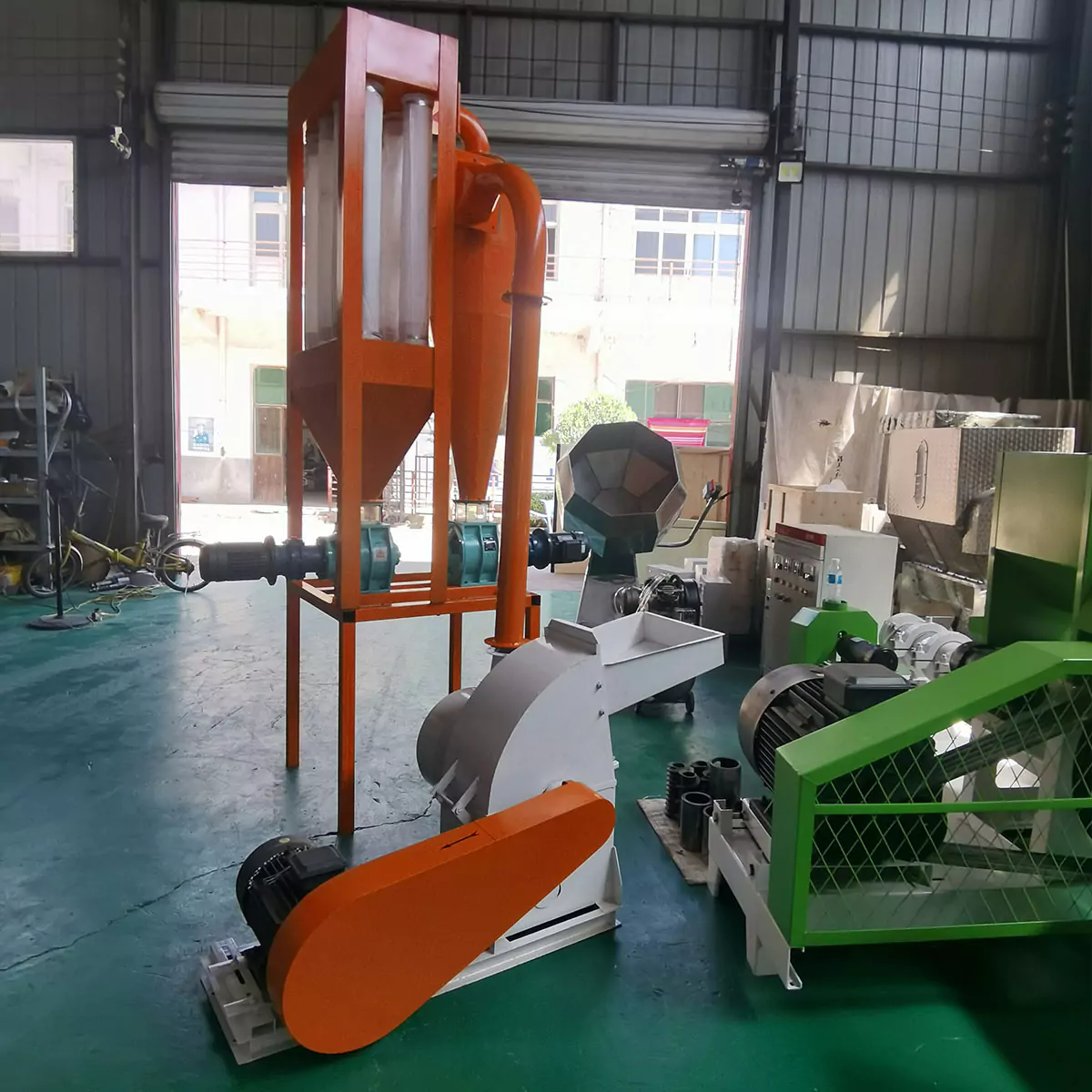
FAQ About Fish Food Processing Plant in Congo
What is the best machine for making tilapia and catfish feed in Congo?
A: The best machine is a fish feed extruder. This is because it makes the floating feed that is ideal for raising tilapia and catfish in ponds, which is the most common and effective method.
Is a diesel or electric machine a better choice for a farm in Congo?
A: A diesel-powered machine or having a dedicated diesel generator is often a safer and more reliable choice for most farmers in Congo. This is due to the significant challenges with the public power supply.
What are some good, low-cost ingredients for making floating fish feed in Congo?
A: The best ingredients are often local agricultural products. Cassava (manioc) and maize (maïs) are excellent and widely available energy sources. For protein, soybean meal can be used when available.
Do I need a dryer with my fish feed extruder?
A: Yes, absolutely. The extrusion process adds a lot of moisture to the pellets. You must use a dryer to reduce this moisture to a safe level (usually below 10%). If you do not dry the pellets properly, they will quickly grow mold and become unusable.
Is it difficult to get spare parts for these machines in Congo?
A: Yes, it can be very difficult and slow. This is why it is extremely important to choose a machine with a simple and strong design. It is also critical to have a clear plan with your supplier on how you will get essential wear parts, like dies and screws, before you purchase the machine.

